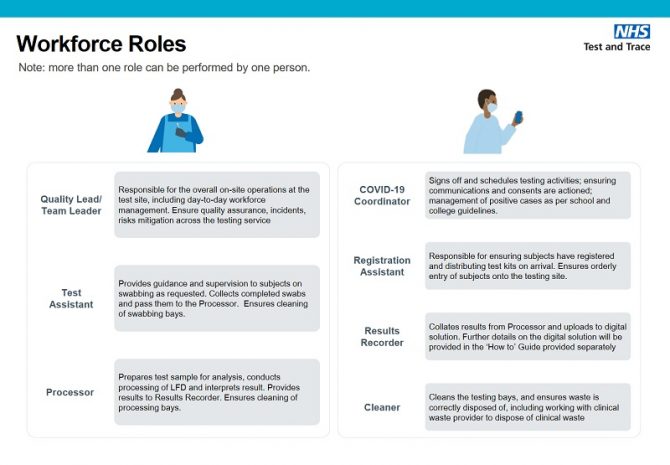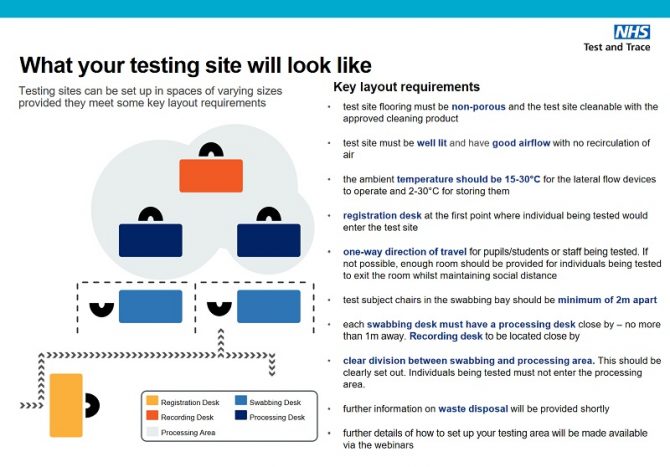The outgoing FE Commissioner Richard Atkins has been knighted in the 2021 Queen’s New Year Honours.
Around 30 people from the further education and skills sector have been recognised, including various top college leaders, a former chair of the Association of Colleges and a vice chair of the Association of Employment and Learning Providers.
Atkins (pictured) is stepping down from the role he has held for two consecutive two-year terms in March, after his second term was extended from last October. He previously served as principal of Exeter College.

He told FE Week he was “honoured” to receive the knighthood, which “recognises the importance and success of all further education colleges as well as my own contributions.
“Today I am thinking about all of the staff and governors who have supported my professional and personal development, as well as about the huge challenges which colleges face this coming term.”
A damehood has been awarded to Department for Education non-executive director Irene Lucas Hays, who also chairs Hays Travel Group.
She said the honour was “really” for Hays Travel’s apprentices, “who have been part of our business lives over the past 41 years”.
Exeter College principal John Laramy has been made a Commander of the Order of the British Empire (CBE) for services to education, for which he was “thrilled, delighted and honoured,” adding: “I am fortunate that I work in a sector that exists to try and make everyone’s tomorrow better than today.”
Education Partnership North East (EPNE) college group is celebrating after chief executive Ellen Thinnesen and chair Rob Lawson were both made Officers of the Order of the British Empire (OBE) for services to education, and for services to education in Sunderland, respectively.

Thinnesen said she felt “incredibly humbled” by the honour, and paid tribute to the “inspirational” people she works with, including her “brilliant” leadership team, wider college staff, and the national, regional and local partners and supporters.
Lawson said of his own award: “It was a real shock to receive the email about the honour and I was amazed to have been put forward.”
Oldham College principal Alun Francis has also been made an OBE for services to education, having run the college for ten years.
“This award isn’t something I would ever have sought or expected – but I’m delighted to accept it on behalf of Oldham College,” he said.
Another long-serving principal, David Walrond, who retired from Truro and Penwith College in August, has been made an OBE for services to further education, saying it was “wonderful” to be honoured for his work as principal and as Callywith College’s chair.
“What is being recognised of course is the vital work for Cornwall of two remarkable institutions and the many outstanding colleagues who have made them what they are.”
Herefordshire, Ludlow and North Shropshire College’s principal Ian Peake and Sally Challis-Manning, principal of Brinsbury College, have been made Members of the Order of the British Empire (MBE).
Adult education has also been recognised, with an OBE for Sutton College principal and HOLEX board member Dipa Ganguli, for services to adult education in London.

Ganguli told FE Week she felt “honoured” to receive her honour, as well as “really humbled” her work has been recognised, after 25 years in the sector.
Rosalyn Parker, principal of Southend Adult Community College, and Dawn Hall, an adult, family and community learning manager in Doncaster, also received OBEs.
Bath College chair and non-executive director of Ofsted Carole Stott has also been made an OBE for services to education
Stott, who was already made an MBE in 2012, said she was “pleased” her honour recognised her work as former chair of the Association of Colleges and WorldSkills as “it kind of feels like it’s for the whole sector, as both those organisations work for the whole sector”.
The Education and Skills Funding Agency’s (ESFA) head of NEET (Not in Education, Employment, or Training) and youth engagement Carolyn Savage has been made an OBE for services to apprenticeships and skills, and is “absolutely thrilled, amazed and humbled to be receiving this honour”.
“I keep having to pinch myself to make sure that it is really happening.”
The agency’s former director of employer and employee engagement, Sue Husband, has also been made an OBE; as has Susan McVeigh, who leads on tax apprenticeships for HM Revenue and Customs.
Husband said she owed her honour “to everyone who has inspired and motivated me along the way,” including WorldSkills UK competitors, from when she was the UK’s official designate at the international WorldSkills competition in Russia last year.
The chair of the ESFA’s audit and risk committee, Hunada Nouss, has also been made an OBE, for public service.
A number of figures from the apprenticeships and skills sector have been made MBEs, including Nichola Hay, chief operating officer of apprenticeship provider Estio Training, vice chair of the Association of Employment and Learning Providers board, and member of the Greater London Authority’s Skills for Londoners Board.
She said she could not have been made an MBE “without all the help and support of my colleagues, past, and present and partner organisations who help improve the lives and career prospects of young people to build better futures.”

Specialist provision has also been recognised, with the principal of Aurora Foxes Academy in Somerset, Emma Cobley, receiving an MBE for service for young people with special educational needs and disabilities.
She said: “I am privileged to lead a dedicated team at Aurora Foxes Academy which is giving students with learning disabilities the skills and opportunities that they deserve to become work and life ready.”
MBEs have also been bestowed upon Sharon Robbie, managing director of Devon and Cornwall Training Providers Network; Sue Tipton, managing director and owner of Birmingham-based Protocol Consultancy Services; Gerard Donnelly, who leads the apprenticeship team at the Department for Work and Pensions; York College’s former chair Shirley Collier; John Godden, chief executive of Salutem Care and Education; David Crosby, chair of Hugh Baird College; Dr Katherine Hewlett, a glass tutor at Working Men’s College; and Neil Weller, chairman of the London Apprenticeship Ambassador Network.
The programme coordinator for science at South Devon College, Janet Ellis, and Richard Ashman, library co-ordinator for City College Southampton, have both been awarded British Empire Medals.
Education secretary Gavin Williamson congratulated all the recipients, saying their work is “so inspiring and deserving of recognition”.
New Year Honours List 2021 – Recipients from FE and skills
Knighthood
Richard Atkins, Further Education Commissioner. For services to Further Education
Damehood
Irene Lucas-Hays, Non-executive board member, Department for Education, For services to Training, to Education and to young people
CBE
John Laramy, Principal, Exeter College. For services to Education
OBE
Susan Husband, Director, Business in the Community, Cymru and lately Director, employer and employee engagement, Education and Skills Funding Agency. For services to Education
Ellen Thinnesen, Chief executive, Education Partnership North East. For services to Education
Carole Stott, Lately Chair, Association of Colleges and Find a Future. For services to Education
Dipanwita Ganguli, Principal, Sutton College. For services to Adult Education in London
Robert Lawson, Chair of Governors, Education Partnership North East. For services to Education in Sunderland
Alun Francis, Principal and Chief Executive Officer, Oldham College. For services to Education
Rosalyn Parker, Principal, Southend Adult Community College. For services to Adult Education and to the community in Southend, Essex
Dawn Hall, Adult, family and community learning Manager, Doncaster. For services to Further Education in South Yorkshire
David Walrond, Principal and chair, Truro and Penwith College and Callywith College. For services to Further Education in
Cornwall
Susan Jessica McVeigh, Head, tax apprenticeship employer-provider, HM Revenue and Customs. For services to Tax and
Compliance apprenticeships
Carolyn Savage, Head, Apprentice Engagement, Education and Skills Funding Agency. For services to Apprenticeships and
Skills
Hunada Nouss, Chair, Audit and Risk Committee, Education and Skills Funding Agency. For public service
MBE
Gerard Donnelly, Team Leader, Apprenticeship Team, People and Capability Group, Department for Work and Pensions. For
services to Social Mobility
Emma Cobley, Principal, Foxes Academy Residential SEN College. For services to Young People with Special Educational Needs and Disabilities
Sally Challis-Manning, Principal, Brinsbury College, Pulborough. For services to Further Education in West Sussex
Shirley Collier, Lately Chair of Governors, York College. For services to Further Education
John Godden, Chief Executive Officer, Salutem Care and Education. For services to the vulnerable, particularly during the Covid-19 response
David Crosby, Chair of the Corporation, Hugh Baird College. For services to Further Education in Merseyside
Katherine Hewlett, Glass tutor, Working Men’s College. For services to Further Education and to Charity in London
Nichola Hay, Chief Operating Officer, Estio Training. For services to Apprenticeships and to Charity
Sharron Robbie, Managing Director, Devon and Cornwall Training Providers Network. For services to Apprenticeships and to Skills
Sue Tipton, Managing Director, Protocol Consultancy Services. For services to Apprenticeships and to Charity in the West Midlands
Neil Weller, Chairman, London Apprenticeship Ambassador Network. For services to Education and to Skills
Ian Peake, Principal and Chief Executive, Herefordshire, Ludlow and North Shropshire College. For services to Education
BEM
Janet Ellis, Programme Co-ordinator, Science, South Devon College. For services to Education
Richard Ashman, Library Co-ordinator, City College Southampton. For services to Further Education




 The three recommendations, along with the introduction of grants for disadvantaged learners to study more part-time higher education courses, make up the committee’s ‘four pillars’ approach, which committee chair Robert Halfon MP (pictured left) says: “Would lay the foundation for a coherent long-term adult education strategy that goes some way to fostering a national culture of lifelong learning and allowing everyone the chance to climb the ladder of opportunity.”
The three recommendations, along with the introduction of grants for disadvantaged learners to study more part-time higher education courses, make up the committee’s ‘four pillars’ approach, which committee chair Robert Halfon MP (pictured left) says: “Would lay the foundation for a coherent long-term adult education strategy that goes some way to fostering a national culture of lifelong learning and allowing everyone the chance to climb the ladder of opportunity.”